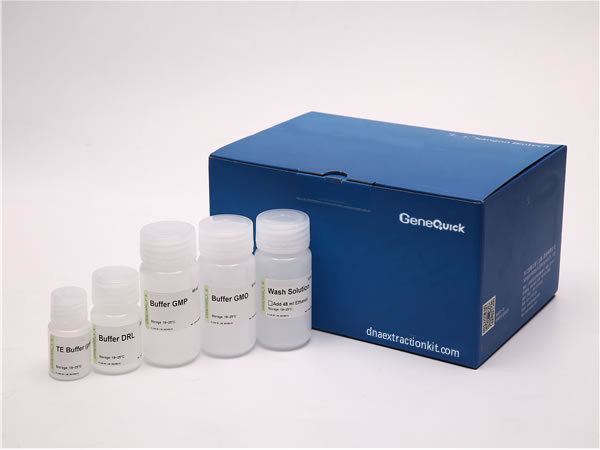What is Research DNA Extraction Kit for Microorganisms?
The Research DNA Extraction Kit for Microorganisms is a specialized laboratory tool designed to isolate high-quality DNA from microbial samples, such as bacteria, fungi, yeast, and other tiny organisms. This kit is essential for scientists and researchers who study microbiology, genetics, or environmental science, as it enables the extraction of pure DNA for further analysis like sequencing or PCR. By using this kit, researchers can efficiently obtain DNA from various microbial sources, ensuring accuracy and reliability in their experiments. The process is optimized to handle the unique cell walls and structures of microorganisms, which can be challenging to break down compared to human or plant cells.
Microorganisms are ubiquitous in nature and play critical roles in ecosystems, health, and industry. Extracting their DNA allows scientists to understand their genetic makeup, identify new species, or study their functions in diseases or biodegradation. This kit simplifies the extraction process, making it accessible for educational settings, such as university labs, or for professional research institutes. It is a fundamental step in molecular biology workflows, supporting advancements in biotechnology, medicine, and environmental monitoring.

Technical Specifications
| Model | Method | Sample | Application | Format | Workflow |
|---|---|---|---|---|---|
| R-M-VIR-20R | Magnetic Beads | Virus | Research | 20R | Manual |
| R-M-VIR-50R | Magnetic Beads | Virus | Research | 50R | Manual |
| R-M-VIR-100R | Magnetic Beads | Virus | Research | 100R | Manual |
| R-M-VIR-200R | Magnetic Beads | Virus | Research | 200R | Manual |
| R-M-VIR-8R | Magnetic Beads | Virus | Research | 8R | Semi-automated or Full Automation |
| R-M-VIR-24R | Magnetic Beads | Virus | Research | 24R | Semi-automated or Full Automation |
| R-M-VIR-48R | Magnetic Beads | Virus | Research | 48R | Semi-automated or Full Automation |
| R-M-VIR-72R | Magnetic Beads | Virus | Research | 72R | Semi-automated or Full Automation |
| R-M-VIR-96R | Magnetic Beads | Virus | Research | 96R | Semi-automated or Full Automation |
Working Principle
The principle behind the Research DNA Extraction Kit for Microorganisms involves a series of biochemical steps to break open microbial cells and isolate DNA. First, a lysis buffer is used to disrupt the cell walls and membranes, releasing the cellular contents, including DNA. For microorganisms with robust structures, additional enzymatic or mechanical methods may be employed to ensure complete lysis. Next, the mixture is treated to remove proteins, RNA, and other impurities through precipitation or binding to a solid phase, such as silica beads or columns.
DNA is then purified using wash steps to eliminate contaminants, and finally, it is eluted in a buffer that preserves its stability for storage or further use. This process leverages the affinity of DNA for specific matrices under certain conditions, ensuring high purity and yield. The kit is optimized for microbial samples, accounting for variations in cell composition, and it minimizes degradation to obtain intact genomic DNA. This principle is grounded in molecular biology techniques, making it efficient and scalable for research purposes.
Performance
The Research DNA Extraction Kit for Microorganisms delivers high performance by providing consistent and reproducible results across various microbial samples. It ensures a high yield of pure DNA, free from contaminants like proteins or inhibitors that could interfere with downstream applications. The kit is designed to work efficiently with low biomass samples, which are common in microbial studies, and it maintains DNA integrity for sensitive techniques like next-generation sequencing. Users can expect fast processing times, often completing extractions within an hour, depending on the sample type and protocol.
Performance is validated through rigorous testing, showing high efficiency in lysing tough microbial cell walls, such as those in Gram-positive bacteria or fungal spores. The extracted DNA is suitable for a wide range of molecular analyses, including gene expression studies, metagenomics, and pathogen detection. This reliability makes the kit a trusted choice for research projects that require precise and accurate genetic data, ultimately contributing to scientific discoveries and innovations in microbiology.
Application
The Research DNA Extraction Kit for Microorganisms is widely used in various scientific fields. In academic research, it supports studies on microbial diversity, evolution, and ecology, allowing scientists to extract DNA from soil, water, or clinical samples containing microbes. In biotechnology, it aids in the development of new enzymes, antibiotics, or biofuels by enabling genetic analysis of microbial strains. Additionally, it is applied in medical research to investigate infectious diseases, identify pathogens, or study the human microbiome's role in health and disease.
Environmental scientists use this kit to monitor microbial communities in ecosystems, assessing impacts of pollution or climate change. It is also valuable in food safety testing, where detecting microbial contaminants is crucial. The kit's versatility makes it suitable for both basic and applied research, fostering advancements in public health, agriculture, and industrial processes. By providing clean DNA, it ensures that subsequent experiments, such as PCR or sequencing, yield reliable results, driving progress in understanding the microbial world.
Core Features and Advantages
The core features of the Research DNA Extraction Kit for Microorganisms include its high specificity for microbial cells, ease of use, and compatibility with various sample types. It offers a streamlined protocol that reduces hands-on time and requires minimal equipment, making it ideal for labs with limited resources. The kit ensures high DNA purity, which is critical for sensitive applications like qPCR or sequencing, and it is designed to handle challenging samples, such as those with low microbial abundance or inhibitory substances.
Advantages of this kit include its cost-effectiveness, as it provides reliable results without the need for expensive instrumentation. It supports high-throughput processing, allowing researchers to extract DNA from multiple samples simultaneously, enhancing productivity. Additionally, the kit is backed by quality controls to ensure batch-to-batch consistency, giving users confidence in their experimental outcomes. These features make it a superior choice for research environments, promoting efficiency and accuracy in microbiological studies.